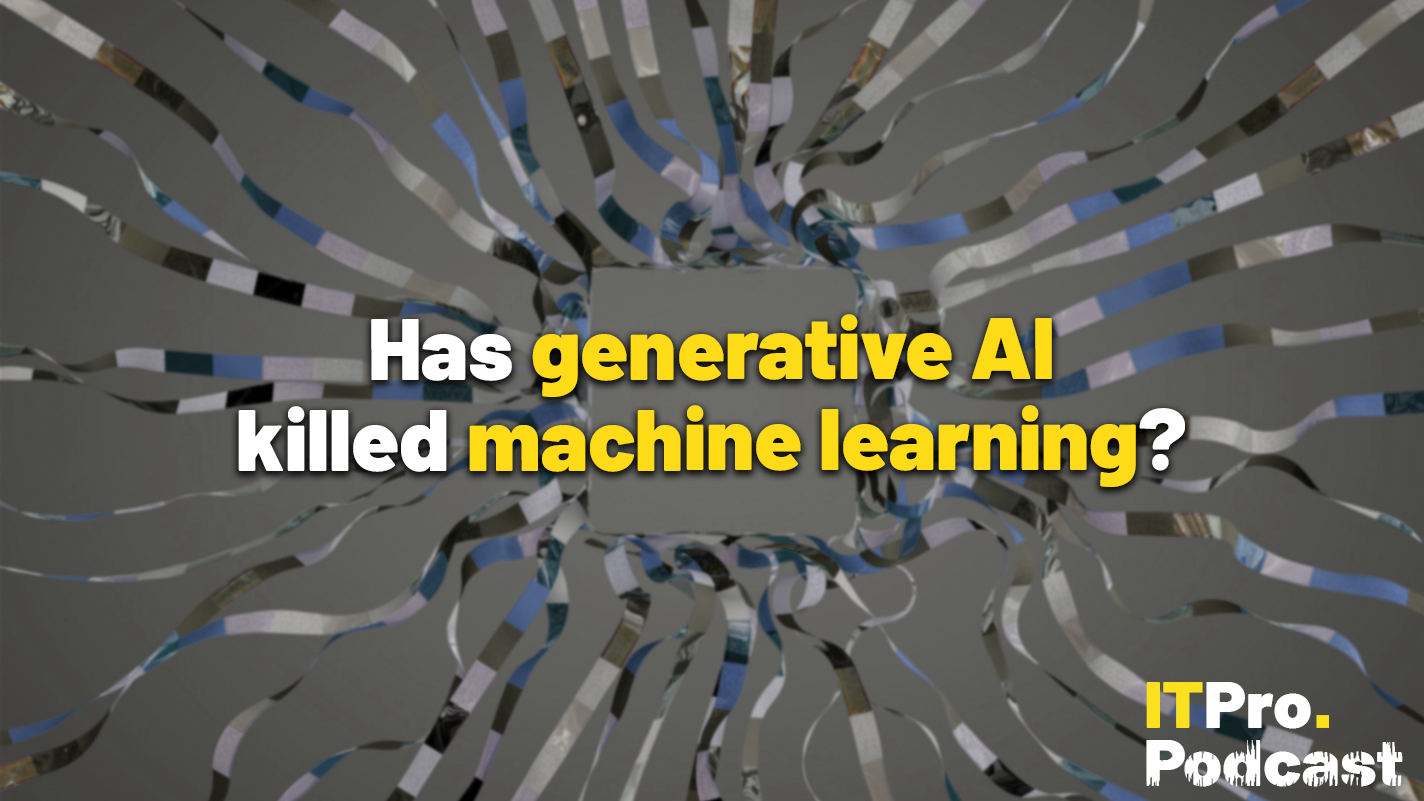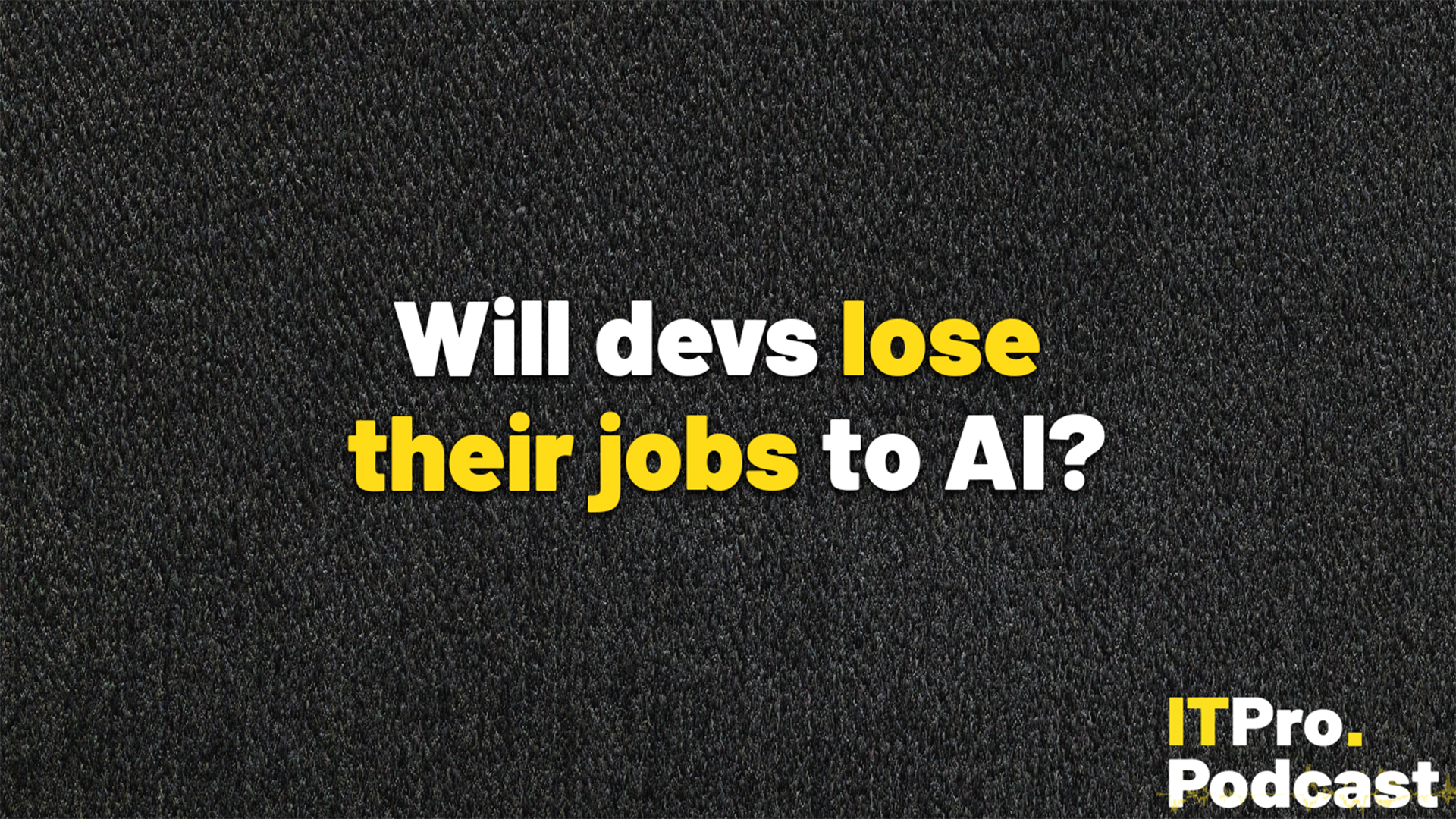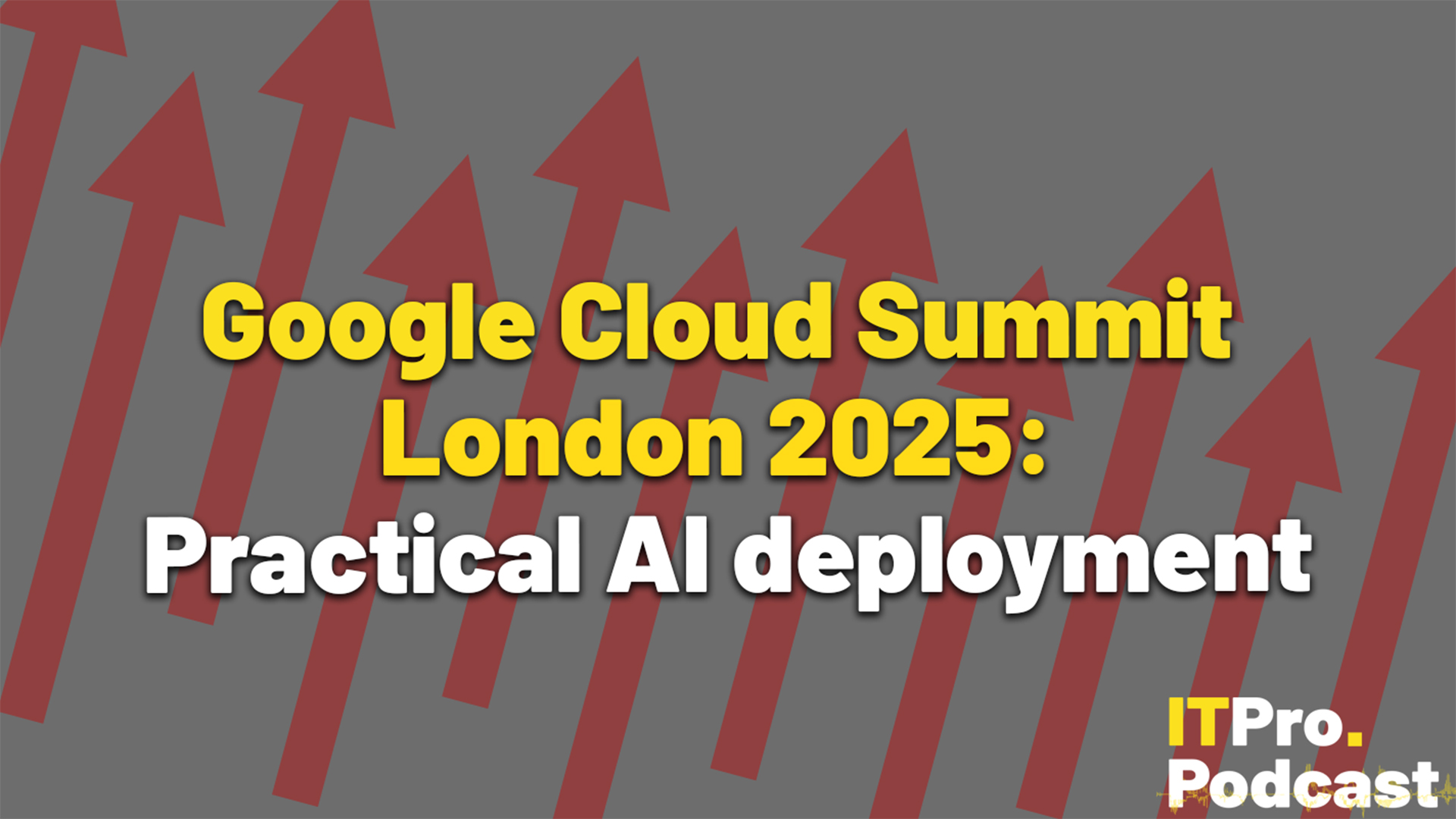Has generative AI killed machine learning?
As the sector embraces new AI models, what role can machine learning continue to play?


Machine learning (ML) has been a field of research for more than 50 years, and as a subset of artificial intelligence has also been the focus of great innovation in that time.
Many businesses use machine learning throughout their stack and some will have relied upon ML frameworks without realizing it. With the rise in popularity of newer forms of AI developments such as generative AI, however, some have questioned the extent to which traditional approaches such as machine learning algorithms still have a place in the tech industry.
In this episode Jane speaks to Sascha Heyer, senior machine learning engineer at DoiT, to explore whether ML still has a role to play in a world that is more interested in conversational AI.
Highlights
“The future is always hard to predict, no one was expecting ChatGPT and GPT in general and I don't know what's happening next year. But I think we will have some more traditional machine learning projects for quite some time, especially because you can combine those traditional machine learning approaches with natural language model approaches.”
“Without large language models engineers had to consider various models, from simple linear regression to more complex ensemble models or deep learning models. And they had to adjust them, according to their use cases, which required a lot of manual steps.”
“If you're just going a couple of months back before ChatGPT and then after ChatGPT it’s a completely different world on how you solve challenges with machine learning. But that doesn't mean that traditional machine learning is obsolete. It still excels when a data set is small, use cases easy, interpretability is crucial, or when the use case is too individual to be solved with large language models.”
Footnotes
- What is machine learning and why is it important?
- Machine learning vs data science: What’s the difference?
- Machine learning vs deep learning vs neural networks: What’s the difference?
- Machine learning vs AI vs NLP: What are the differences?
- Seven reasons why machine learning is a good career
- Machine learning vs statistics: What’s the difference?
- What is generative artificial intelligence (AI)?
- What is ChatGPT and what does it mean for businesses?
- AI in software engineering – Six ways the profession is changing
Subscribe
- Subscribe to The IT Pro Podcast on Apple Podcasts
- Subscribe to The IT Pro Podcast on Spotify
- Subscribe to the IT Pro newsletter
- Join us on LinkedIn
Sign up today and you will receive a free copy of our Future Focus 2025 report - the leading guidance on AI, cybersecurity and other IT challenges as per 700+ senior executives

Rory Bathgate is Features and Multimedia Editor at ITPro, overseeing all in-depth content and case studies. He can also be found co-hosting the ITPro Podcast with Jane McCallion, swapping a keyboard for a microphone to discuss the latest learnings with thought leaders from across the tech sector.
In his free time, Rory enjoys photography, video editing, and good science fiction. After graduating from the University of Kent with a BA in English and American Literature, Rory undertook an MA in Eighteenth-Century Studies at King’s College London. He joined ITPro in 2022 as a graduate, following four years in student journalism. You can contact Rory at rory.bathgate@futurenet.com or on LinkedIn.
-
 Veeam ramps up growth plans with trio of leadership hires
Veeam ramps up growth plans with trio of leadership hiresNews The data resilience vendor has reshaped its senior leadership team to deepen partner engagement and streamline customer success in the AI era
-
 CDOs are facing an uphill battle with upskilling and data management
CDOs are facing an uphill battle with upskilling and data managementNews A survey from Informatica shows visibility and governance has not kept pace with the use of AI
-
 Building a secure payments strategy
Building a secure payments strategySponsored Podcast Facilitating a smooth payments experience for iGaming can go hand-in-hand with building a more secure platform
-
 Mitigating bad bots
Mitigating bad botsSponsored Podcast Web crawlers pose an immediate business risk, necessitating immediate action from IT leaders
-
 Why do AI projects fail?
Why do AI projects fail?ITPro Podcast Without a careful approach at the design phase, AI tools will fall apart in runtime
-
 Is vibe coding the future?
Is vibe coding the future?ITPro Podcast As developers use AI to speed up code generation, leaders must work to ensure the technology complements existing practices
-
 September rundown: The UK becomes an AI playground
September rundown: The UK becomes an AI playgroundITPro Podcast Big tech has announced tens of billions in infrastructure investments for the UK – how will it help?
-
 August rundown: Are AI job losses a fantasy?
August rundown: Are AI job losses a fantasy?ITPro Podcast AWS CEO Matt Garman's comments were made as big tech continues to lay off workers – but AI may not be the cause
-
 Will devs lose their jobs to AI?
Will devs lose their jobs to AI?ITPro Podcast Major errors in AI code generation throw doubt on the timeline to replacing human workers
-
 Google Cloud Summit London 2025: Practical AI deployment
Google Cloud Summit London 2025: Practical AI deploymentITPro Podcast As startups take hold of technologies such as AI agents, where is the sector headed?